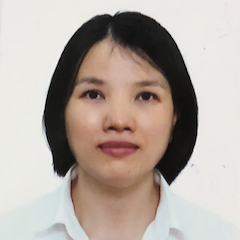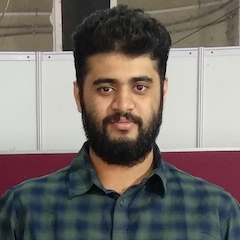Viral Genomics and Bioinformatics - Asia
12–17 May 2024
OUCRU, Vietnam
Hands-on training in viral genome sequence analysis and interpretation of large-scale sequencing genomics data
Course Summary
Viruses contribute to a significant public health burden globally. In Asia, viral infections such as influenza, dengue fever, hand, foot and mouth disease, chikungunya, and viral hepatitis kill hundreds of thousands of people each year. Besides health issues, emerging viral illnesses and epidemics have a global economic impact. According to the World Bank, the SARS-CoV-2 pandemic caused a more than $10 trillion deficit in the global economy in 2020-2021 alone. This demonstrates the impact of viral illnesses not only on human and animal health but also on the social and economic growth of the world.
Technological advances in science and research are making it possible for rapid detection, surveillance and management of viral diseases and outbreaks. In recent years, next-generation sequencing (NGS) technologies have played an important role in the identification and classification of viruses, in the detection of drug-resistance mutations and the treatment and surveillance of viral diseases. Early identification of a virus and rapid characterisation of its genome will aid towards better treatment and help in controlling the disease spread. Along with the advances in sequencing technologies, it is necessary to develop data management methods, computational analysis tools and human expertise to cope with the sequence deluge. The number of researchers able to interpret NGS sequence data is currently limited.
The Viral Genomics and Bioinformatics course will teach participants how to analyse viral genome sequences and interpret genomic data obtained by high-throughput sequencing. The use of the command line to analyse viral NGS data, quality control of sequences, reference mapping and de novo assembly of viral genomes, pathogen identification from metagenomics data, and creating phylogenetic trees will be covered in the course.
Target audience
The course is free to attend and is aimed at scientists based in Asia who are engaged in relevant research or clinical activities, have access to viral genome sequence data and are interested in disseminating knowledge to small groups. The programme will benefit research scientists including PhD students, postdoctoral researchers; and healthcare professionals including clinical laboratory scientists.
Programme
The hands-on programme will cover metagenomic experiments, and several aspects of the analysis of next-generation sequencing data from viral genomes, including lectures, practical computational sessions, case studies and seminars.
Topics:
- Metagenomics for detection and whole genome sequencing viral pathogens
- Introduction to Linux/Unix
- BASH scripting
- NGS file formats
- NGS data quality check and cleaning
- Reference mapping
- Assembly statistics and visualisation
- Consensus and variant calling
- De novo assembly
- Pathogen sequence detection using metagenomics
- Multiple sequence alignment
- Phylogenetics methods and tree building
- Group Project
Learning Outcomes:
After completing this course, participants should be able to:
- Perform metagenomics to detect and genetically characterise known and unknown viruses in clinical samples, supporting molecular epidemiology study and outbreak investigation
- Apply Unix/Linux command line and write basic shell scripts for automating bioinformatics tasks
- Apply appropriate software tools for performing quality control, reference mapping and genome assembly of viral genomes
- Apply appropriate software tools to identify variants from viral sequence data
- Use metagenomics tools to detect and identify viral pathogens
- Compute multiple sequence alignments and construct phylogenetic trees to understand viral evolution and transmission dynamics
- Build a pipeline for analysis, interpretation and identification of viral pathogens.
Instructors and speakers
Organisers

Le Van Tan
Oxford University Clinical Research Unit (OUCRU), Vietnam

Urmila Kulkarni Kale
Savitribai Phule Pune University, India

Sreenu Vattipally
MRC-University of Glasgow Centre for Virus Research, UK
Instructors and Assistants

Srikeerthana Kuchi
MRC-University of Glasgow Centre for Virus Research, UK

Richard Otton
MRC-University of Glasgow Centre for Virus Research, UK

Thiên Tran Ba
Oxford University Clinical Research Unit, Vietnam

Hong Nguyen
Oxford University Clinical Research Unit, Vietnam

Ny Nguyen Thi Han
Oxford University Clinical Research Unit, Vietnam

Sanket Limaye
Savitribai Phule Pune University, India

Jonathan Chan
University of Malaysia, Sarawak, Malaysia
How to apply
Prerequisites
Applicants should be PhD students, clinical trainees or specialists in medical microbiology or bioinformatics, postdoctoral scientists, senior technicians, or research assistants with a Master’s degree. Applicants should be based in Asia and be actively engaged in, or soon to commence, research, clinical practice, provision of clinical services or policy development related to viral genomics.
Computer Proficiency: Prior completion of a free Introduction to Linux for Biologists online course is required to enhance the course learning experience. This course will be provided free of charge and it aims to equip participants with essential bioinformatics skills for pathogen genomics.
The course will be taught in English.
How to Apply
Please click on the Apply button above to begin the application process. Places are limited and will be awarded on merit. If you have any problems with the online application process, please contact us.
Please note: Applications must be supported by a recommendation from a scientific or clinical sponsor (e.g. supervisor, line manager or head of department). A request for a supporting statement will be sent to your nominated sponsor automatically during the application process. Applicants must ensure that their sponsor provides this supporting statement by the application deadline. Applications without a supporting statement cannot be considered.
Cost
Cost
The course is subsidised by Wellcome Connecting Science Courses and is free to attend.
Bursaries
Bursaries are offered based on merit to assist with travel, accommodation, and living expenses during the course. To apply, please complete the “bursary” section on the course application form. Recipients will typically be informed of their award in conjunction with their course acceptance. Please keep in mind that both the applicant and sponsor must provide a justification for the bursary as part of the application process.
Accommodation services phishing scam – please be vigilant. More information.

